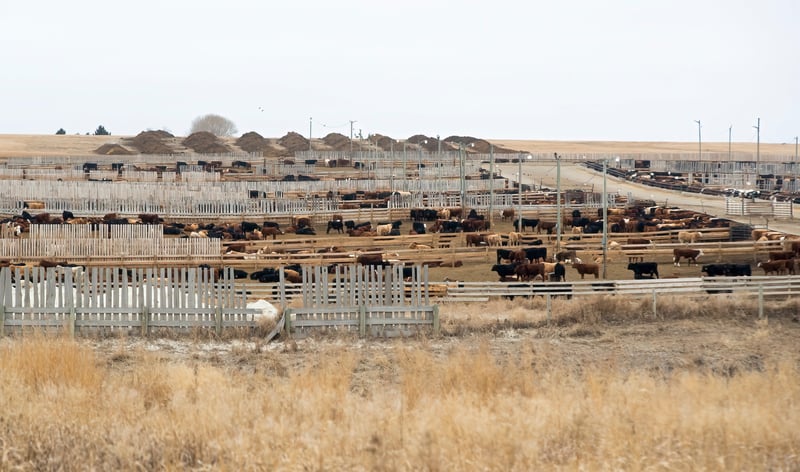
Canada's plan to tackle climate change must include animal agriculture
News
It’s time we address animal agriculture as the new coal
In the past several years, governments, including Canada’s, have stepped up to make bolder policy commitments to combat climate change. Efforts have largely focused on the oil and gas sector, although the Emissions Reduction Plan released in March 2022 includes reduction targets across many sectors such as oil and gas, transportation, and other industries.
The lack of focus on the agriculture sector, however, is disappointing. Although there is a mention of sustainable farming methods (e.g., cover crops, rotational grazing and fertilizer management), the rest is much like before – promises to help farmers adopt technological solutions. There is no attention being made to the food we grow or what we eat when a key pathway to making meaningful reductions in Canada’s and global greenhouse gas emissions (GHGs) is to farm fewer animals and eat less meat and dairy.
Expert opinion is clear: we MUST curb our appetite for animal protein if we are to make meaningful headway on reducing our GHGs and meeting our 2050 target of keeping the world’s average temperature no more than 1.5 °C above pre-industrial levels.
It is plain and simple: without a reduction in the consumption and production of animal-sourced foods, we cannot reach this goal. In fact, a study published last month from the University of Bonn in Germany stated that developed countries will need to cut their meat consumption by at least 75% to make the necessary reductions in GHGs.
Here are the facts
- Animal agriculture accounts for a whopping 14.5% of greenhouse gas emissions (GHGs) and is the primary source of methane and nitrous oxides, the most potent of the three main greenhouse gases.
- Without drastic reductions in the consumption of animal-sourced foods, agriculture will consume most of the world’s carbon budget necessary for keeping global temperature rises under 2°C by 2050.
- Our food system is the primary driver of biodiversity loss, mainly due to the disproportionate impact of animal agriculture on biodiversity, land use and the environment. Agriculture alone has been identified as a threat to 24,000 of the 28,000 (86%) species at risk of extinction. The global rate of species extinction today is higher than the average rate over the past 10 million years.
- Meat and dairy do not provide nutrition in an efficient or sustainable way. While meat and dairy provide just 18% of calories and 37% of protein, they use 83% of farmland and produce 60% of agriculture’s greenhouse gas emissions.
What Canada needs to do
The Canadian government must encourage its citizens to eat less meat and dairy, which is in line with its own Canada Food Guide, revised in 2019. Eating more plants and less animal protein also benefits animals and our health.
Canada must also set agriculture emissions reduction targets and support farmers to transition to more humane and sustainable farming systems. This includes reducing the number of animals farmed, adopting higher welfare systems that are more sustainable and less polluting, and utilizing agroecology methods.
Eventually Canada will have no choice but to address this proverbial ‘cow in the room’. Not doing will have severe consequences for a warming planet.
Further reading
- Read our op-ed in the Toronto Star: We need to make the connection between climate change and industrial animal agriculture
- Read our government brief: Achieving a healthy, sustainable food system in Canada
- Chatham House research paper: Food system impacts on biodiversity loss
- United Nations Environment Programme (UNEP) report: Preventing the next pandemic - Zoonotic diseases and how to break the chain of transmission
Did you know animal agriculture is a leading cause of climate change?